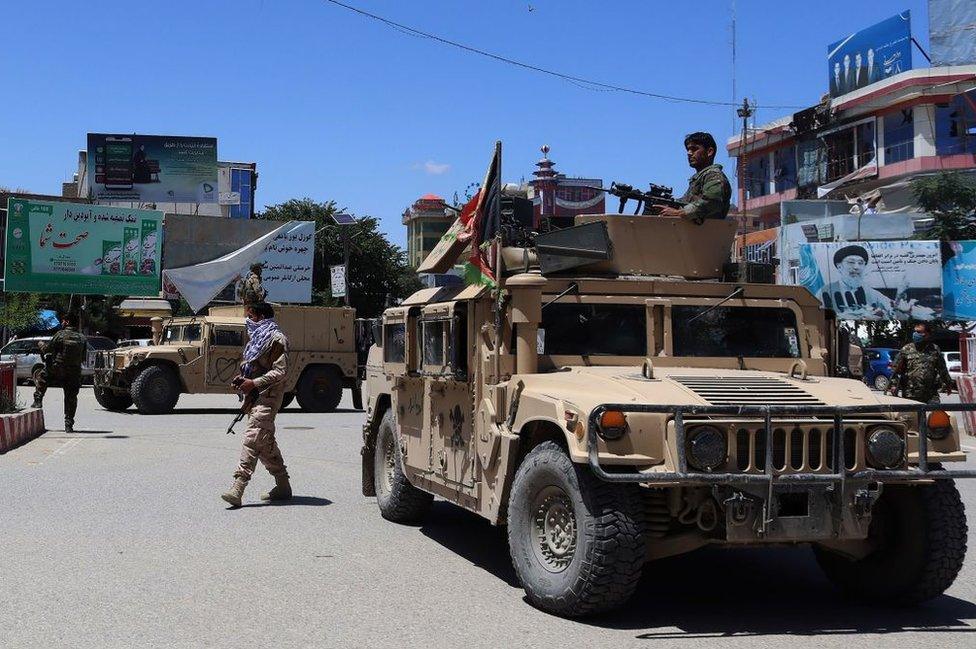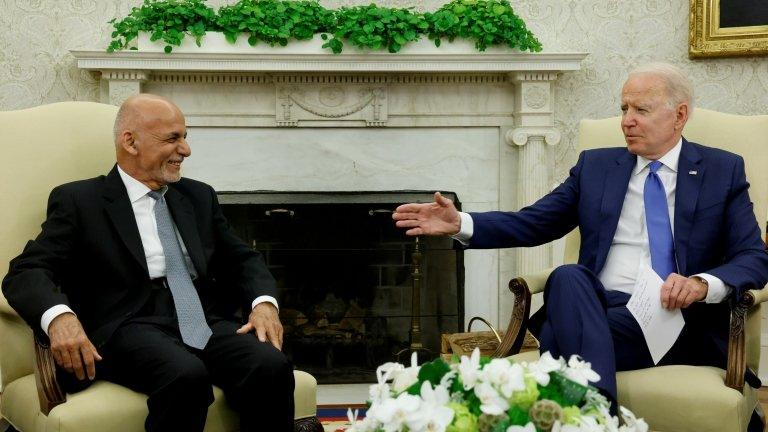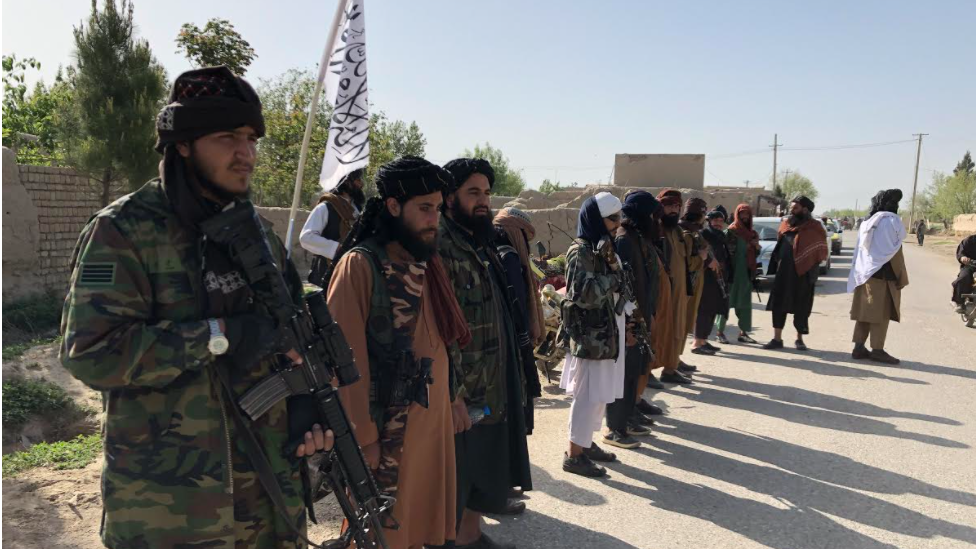Afghanistan: US military 'days away' from completing pull-out
- Published

Afghan security forces pictured in the strategic city of Kunduz
The US military could complete its withdrawal from Afghanistan within days, reports say, amid increasing Taliban battlefield gains.
US officials told Reuters, external that some US forces were expected to stay to protect the US embassy and Kabul airport.
The reports came as a top US commander warned the country risked sliding into civil war as the last US troops leave.
Fighting has surged since the US began withdrawing last month, with the Taliban seizing swathes of territory.
CNN quoted US officials corroborating the Reuters report, external. "This week could be a critical week in the withdrawal and end of the retrograde process," an unnamed defence official told the network.
About 650 US troops are expected to remain to help secure the US embassy, external in Kabul, and several hundred more may be stationed at the city's airport.
President Biden has set a deadline of 11 September for US troops to fully withdraw. But recent reports had suggested most of the more than 4,000 troops deployed in recent months would be out by mid-July, well ahead of time.
The pace of the pull-out now appears even faster.
On Tuesday, Gen Scott Miller said Afghanistan could face "very hard times" if its leadership was unable to unite once international troops leave.
The warning from the commander of the US-led mission in Afghanistan came just days after the UN warned of "dire scenarios" as the Taliban took hold of many districts.
It said insurgents had taken more than 50 of 370 districts since May, encircling many cities and closing in on the capital Kabul.
"The security situation is not good right now," Gen Miller said in a rare news conference.
"Civil war is certainly a path that can be visualised if this continues on the trajectory it's on right now," he added. "That should be a concern to the world."


Afghans knew this was coming. Warnings of "civil war" have become a visceral part of their own lives; they've lived, and seen loved ones die, in a steadily deteriorating situation long before this "day after" even starts.
But the looming departure of the last US soldier is now concentrating minds. Many fear the worst even as they hold fast to any faint glimmers of hope. Both the government and the Taliban speak of a summer of fighting before there's any chance of a genuine effort to forge a negotiated way out.
Everyone insists "there is no military solution" but there's still no certainty of a peaceful one. In many rural areas, families already flee an upsurge in fighting, many for the umpteenth time.
These are anxious days of "fight-or-flight." Many with means have left, are leaving; others vow to stay. Most Afghans have no choice; this moment of history will just be more days of trying to make ends meet.

Gen Miller accused the Taliban of failing to reduce violence in line with an agreement it struck with the US.
The militant group claims to have recently captured more than 100 districts across Afghanistan - something experts tie to the lack of US air support to Afghan forces.
But Gen Miller did not rule out the US using air strikes against the Taliban.
From May 2021: Top US commander General Scott Miller reflects on Nato forces' time in Afghanistan ahead of its departure
"What I [would] like to see is no air strikes, but to get to no air strikes, you stop all violence," he told reporters.
US-led forces ousted the Taliban from power in Afghanistan in October 2001. The group had been harbouring Osama Bin Laden and other al-Qaeda figures linked to the 9/11 attacks in the US.
President Biden has said the American pull-out is justified as US forces have made sure Afghanistan cannot again become a base for foreign jihadists to plot against the West.
Afghan President Ashraf Ghani insists the country's security forces are fully capable of keeping insurgents at bay, but many believe the withdrawal risks casting Afghanistan back into the grip of the Taliban.
President Biden has pledged that the US will continue to support Afghanistan after pulling troops out, but not "militarily".
The last Italian soldiers deployed in Afghanistan as part of Nato-led foreign forces have now returned home. Italy's defence ministry said it had deployed more than 50,000 troops to Afghanistan since 9/11.
On Tuesday, Germany brought to an end almost two decades of involvement in the country. About 150,000 Germans had served there since 2001, the defence ministry said.
- Published26 June 2021

- Published22 June 2021
